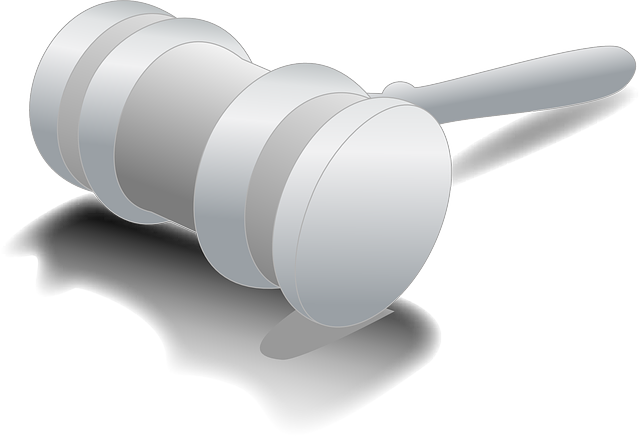Public corruption charges, including bribery, fraud, and misappropriation by healthcare officials, significantly impact regulation and present complex legal challenges. Skilled defense strategies exploit regulatory loopholes and require in-depth knowledge of both law and context. These cases involve navigating intricate regulations, demonstrating intent, and differentiating legitimate business from illicit activities. Corruption has severe consequences for patient care, infrastructure, and technological advancement, necessitating comprehensive investigations and preventive measures like stronger frameworks, internal controls, and expert advice to address Common Legal Issues in Healthcare Regulation effectively.
“Public corruption charges cast a shadow over healthcare systems worldwide, undermining patient trust and care quality. This article delves into the intricate web of public corruption charges, focusing on their definition, scope, and unique legal complexities as seen in common legal issues in healthcare regulation. We explore the profound impact of corruption on patient outcomes and healthcare infrastructure while offering preventative strategies to combat this pervasive challenge.”
- Understanding Public Corruption Charges: Definition and Scope
- Common Legal Issues Arising in Healthcare Regulation Cases
- The Impact of Corruption on Patient Care and Healthcare Infrastructure
- Preventive Measures and Strategies to Combat Public Corruption in Healthcare
Understanding Public Corruption Charges: Definition and Scope

Public Corruption Charges refer to a range of illegal activities involving public officials or those with access to governmental processes. This includes abuse of power for personal gain, such as bribery, fraud, and misappropriation of funds. The scope extends to any action that undermines the integrity of public institutions and distorts the administration of justice. Understanding these charges is crucial in navigating the complex landscape of general criminal defense, especially within healthcare regulation where common legal issues frequently arise.
While achieving a complete dismissal of all charges might seem ideal, it’s important to recognize that each case is unique. A skilled legal team can often secure extraordinary results by employing strategic defenses and leveraging loopholes to counter these serious allegations. This involves meticulous investigation, expert testimony, and a deep understanding of both the law and the specific context in which the alleged corruption occurred.
Common Legal Issues Arising in Healthcare Regulation Cases

In healthcare regulation cases involving public corruption charges, several common legal issues arise that can significantly impact the outcome of investigations and subsequent enforcement actions. These include complex regulatory frameworks, where non-compliance or misinterpretations can lead to accusations of fraud or abuse. Understanding these regulations in their entirety is crucial throughout all stages of the investigative and enforcement process.
Another prevalent issue is the challenge of demonstrating intent, especially when attempting to prove corrupt practices within respected business entities. Defending against such charges often requires crafting a compelling narrative that separates legitimate business decisions from illicit activities. Legal teams must employ strategic arguments to win challenging defense verdicts, ensuring that due process is followed while navigating the intricate web of healthcare regulations and legal precedents.
The Impact of Corruption on Patient Care and Healthcare Infrastructure

Public corruption within healthcare systems can have profound effects on patient care and the overall development of medical infrastructure. When public officials or healthcare providers engage in illicit activities, it often leads to a myriad of issues. Patients may experience delayed access to essential services, as funds meant for critical care are diverted for personal gain. This results in inadequate resources, poorly maintained facilities, and a shortage of qualified personnel, ultimately compromising the quality of treatment.
The consequences extend beyond individual patients; they impact entire communities. Corruption can hinder the advancement of healthcare technologies, impede the acquisition of modern medical equipment, and divert funds from research and development. Common legal issues in healthcare regulation, such as licensing disputes or ethical dilemmas, may become more prevalent when corruption is present. A comprehensive investigation into these matters, aiming for a complete dismissal of all charges, can help restore integrity and ensure that healthcare services are delivered efficiently, ultimately achieving extraordinary results for the respective business and community.
Preventive Measures and Strategies to Combat Public Corruption in Healthcare

Preventive measures play a pivotal role in combating public corruption within healthcare systems. One effective strategy is to strengthen legal frameworks and regulations surrounding healthcare procurement processes. This includes implementing rigorous transparency protocols, such as open-bidding systems, where all offers are publicly disclosed, fostering an environment of accountability. Healthcare institutions should also establish robust internal controls and audit mechanisms to monitor financial transactions, ensuring compliance with established guidelines. Regular training for staff on ethical practices and the potential consequences of corruption can serve as a deterrent.
Addressing common legal issues in healthcare regulation is essential. For instance, legal experts specializing in white-collar defense can advise institutions on navigating complex regulatory landscapes, helping them avoid high-stakes cases arising from corrupt practices. By adopting proactive measures and staying vigilant, healthcare organizations can protect their integrity and ensure that public resources are allocated fairly and efficiently, ultimately enhancing patient care and trust in the system.
Public corruption charges significantly impede patient care and healthcare infrastructure development. By understanding the definition and scope of public corruption, navigating common legal issues in healthcare regulation, and adopting preventive measures, we can foster a more transparent and accountable healthcare system. Implementing robust strategies to combat public corruption ensures better access to quality healthcare for all, ultimately enhancing overall public health outcomes.






